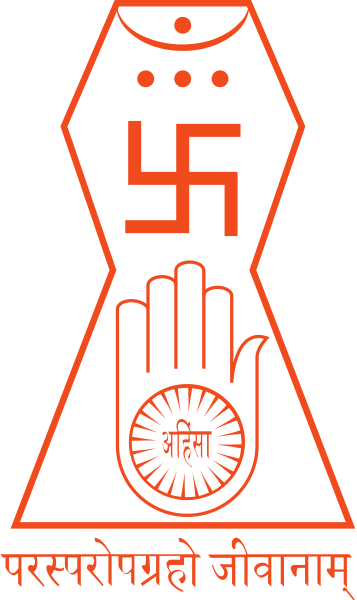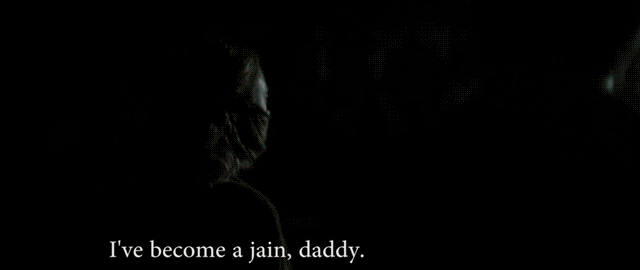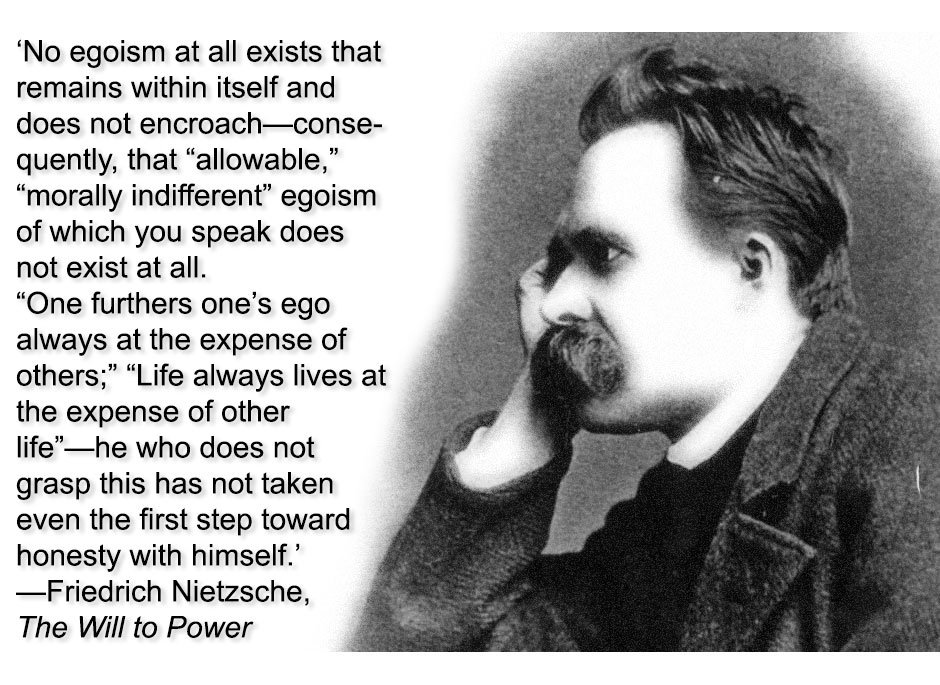
The Jainist logo. Source: Wikipedia commons.
What do Veganism, Nonviolence, and Universal Love have in common? Good, but unrealizable, intentions.
It's always been popular, this delusion that we can be without harming. Whether it's the Christian command to love your enemies, or the much older principle of Ahimsa ('non-injury') in Indian religions, Mahatma Gandhi's nonviolence or that of Martin Luther King Jr.—the world has always had a soft spot for the idea of non-harmful, zero-footprint living, going as far as to codify it in our current culture, in impossible injunctions such as 'live and let live.'
Can we live without killing?
Simply by being we rob other organisms of their own life. The mere act of breathing, for instance, though it appears to be quite innocuous, is an act that results in the death of a numberless multitude of bacteria. The Buddhists go to such great lengths to avoid stepping on ants and other such small creatures, only to have modern science reveal that the process of being itself is a veritable bloodbath.

The non-harming principle (in this case Jainism) captured vividly in the character of Merry Levov in Philip Roth's American Pastoral.
Can we love without hating?
Every value implies a disvalue. Every positive can be expressed as a negative: saying 'I love X' is just another way of saying 'I hate not-X.' A parent who loves his child and cares for its welfare will inevitably experience and express his displeasure when anyone harms it. It's a psychological fact, it's human nature: We love only to the extent that we hate the opposite of what we love.
Why is there conflict in the world?
This entanglement of value and disvalue explains why hatred and conflict are such a pervasive feature of our lives. It also shows why there can be no such thing as universal love. Knowing who we really are entails coming to terms with this agonistic (hostile) nature of ours. Any ethics that is premised on the possibility of universal love is bound to fail.
Toward a more honest ethics
In order to build a more honest and correct ethics, we first have to make peace with our own nature. Truth, virtue, love—all great and wonderful ideals, to be sure, but the truth of the deer is ill-suited to the lion's way of life. No matter how much we'd like our lives to have a zero biological footprint, the nature of existence—of what it means to have values—makes it impossible. That's because every positive value necessitates the existence of its antithetical 'evil twin': every parent can be turned into the executioner of his child's killer, every property-owner into an oppressor of the labor class, every Christian into a witch-hunter. Since every value X has its antithesis not-X, opposing the antithesis of the value one embraces (opposing not-X) is not an option—it is an inescapable and logical necessity. I love therefore I hate! It is possible that this 'I hate' may never be expressed—may remain hidden even from the consciousness of its bearer—because no actual event so far has brought it out into the open. But for those of us whose awareness is not limited to the skin-deep proceedings of the accidentally actual, no man is as peaceful and kind as he might seem.

Summing up
Brevity is the soul of logic, and so everything I've said above can be expressed briefly and neatly as follows:
(1) To be is to have values.
(2) For every value there corresponds a disvalue. In other words, for everything we love there corresponds something we hate.
(C) Therefore, to be is to hate!
Right or wrong, good or evil, this is just the way things are. This is who we are.
If you prefer to end it on a positive note, just replace (C) with (C2):
(C2) Therefore, to be is to love!
Just remember that you must take the bad (C) with the good (C2)!
